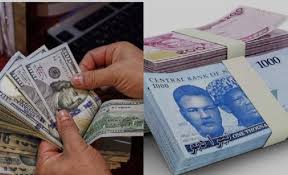The naira continued its rally on Wednesday, closing at N1,500.91 to the United States dollar at the official Nigerian Foreign Exchange Market. The performance marked a significant milestone as the local currency stayed below the N1,500/$ threshold for the second day in a row, showing signs of stability in the exchange rate.
Data from the Central Bank of Nigeria (CBN) showed that during the day’s trading session, the naira moved between N1,498/$ and N1,507/$. This extended the positive momentum that started in September when the currency opened the month at N1,526.09/$ at the NFEM. By Monday, it had strengthened to N1,506/$, remained steady on Tuesday, and appreciated further on Wednesday.
The last time the naira traded around N1,500/$ was March 5, 2025. This return to the level is now seen as a positive signal for the market. The parallel market also reflected the gains, as the naira appreciated to between N1,515/$ and N1,517/$ on Wednesday, compared to N1,525/$ on Tuesday.
Analysts explained that the rally was driven by stronger demand for the naira, a slowdown in speculative trading, and rising foreign reserves. They noted that confidence is returning to the currency market and expressed optimism that the trend could continue in the short term if the positive drivers remain in place.
Nigeria’s external reserves climbed to $41.59bn as of Tuesday, an increase of $25m from the previous day. The reserves have steadily improved in recent weeks, pointing to a stronger external position for the country.
In its Macros and Market Insight report released on Wednesday, research firm Meristem stressed that the higher reserves were playing a major role in supporting the naira’s recovery. The firm explained that the domestic economy achieved relative stability in August, helped by slower inflation, improved crude oil output, and a sharp increase in capital inflows.
“These factors boosted the country’s foreign exchange reserves by the end of the month, helping to sustain stability in the naira,” Meristem said. “We see the strengthened reserve position as a key economic milestone, as it reflects robust external buffers and enhances the Central Bank of Nigeria’s ability to sustain exchange rate stability.”
The report also noted that the stronger reserves would send positive signals to investors, especially foreign portfolio investors, by building confidence in Nigeria’s economic outlook. It projected that the positive momentum would likely continue, supported by steady oil receipts and growth in non-oil exports.
Meristem added, “This provides a critical buffer for effective exchange rate management and broader macroeconomic stability. Nonetheless, downside risks stemming from weaker global oil prices, insecurity in the oil-producing regions, and possible production challenges remain.”
With reserves above $41bn, Nigeria now has about 10 months of import cover, well above the international standard of three months. Market analysts see this as a reassuring sign for businesses and investors that rely on foreign exchange for imports and cross-border transactions.
The ongoing appreciation of the naira comes at a period when confidence in Nigeria’s economic reforms is crucial. The CBN has been at the center of efforts to restore order to the foreign exchange market through reforms such as unifying exchange rates, reducing speculative demand, and attracting foreign capital inflows.
For businesses, a stronger and more predictable naira means better planning for imports, reduced uncertainty in pricing, and improved investment decisions. For households, the outlook raises cautious optimism that exchange rate stability may help reduce inflationary pressures, especially for goods and services that depend heavily on imports.
Experts, however, warn that sustaining the rally will depend on disciplined economic management. They stressed that the government must keep crude oil production stable, ensure revenue from exports continues to grow, and manage fiscal spending carefully.
With reserves rising, speculative pressures falling, and oil income supporting inflows, many observers believe the naira’s current gains are built on firmer ground than in the past. But they also caution that Nigeria must continue to build investor confidence and diversify its sources of foreign earnings if the currency is to remain stable in the long run.
